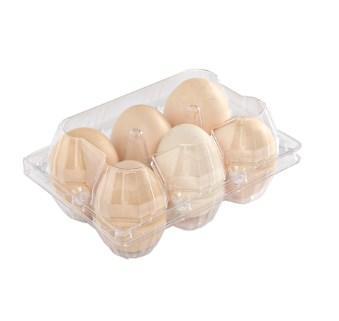Plastic egg tray suppliers are an integral part of the supply chain for the egg industry, providing essential packaging that safeguards eggs during storage and transportation. The proper storage of these trays is crucial to ensure the longevity and quality of the eggs they contain. This article delves into the various considerations that must be taken into account by plastic egg tray suppliers and their clients to maintain optimal storage conditions.
First and foremost, the environment in which plastic egg trays are stored plays a significant role in preserving the quality of the eggs. Humidity and temperature are two critical factors that plastic egg tray suppliers must consider. High humidity can lead to the growth of mold and bacteria, which can compromise the integrity of the eggs. On the other hand, fluctuations in temperature can cause condensation within the trays, leading to similar issues. Therefore, plastic egg tray suppliers should recommend storing the trays in a cool, dry place with a consistent temperature and low humidity levels.
Another important aspect of storage for plastic egg tray suppliers is the organization and stacking of the trays. The trays should be stacked in a manner that prevents damage to the eggs and the trays themselves. Overloading or improper stacking can lead to the bottom trays being crushed, which in turn can damage the eggs. Plastic egg tray suppliers should provide guidelines on the maximum height for stacking and the use of appropriate storage racks or pallets to ensure stability.
Light exposure is another factor that plastic egg tray suppliers should consider when advising on storage practices. Prolonged exposure to sunlight or artificial light can cause the plastic to degrade over time, potentially weakening the trays and affecting their protective qualities. Plastic egg tray suppliers should suggest storing the trays in a dark or low-light environment to prolong their lifespan and maintain the quality of the packaging.
The cleanliness of the storage area is also a crucial consideration for plastic egg tray suppliers. A clean environment helps to prevent the introduction of contaminants that could affect the eggs. Regular cleaning and sanitizing of the storage area, as well as the trays themselves, should be part of the storage protocol recommended by plastic egg tray suppliers.
In addition to the physical aspects of storage, plastic egg tray suppliers should also consider the handling of the trays during storage. The trays should be handled with care to avoid damage that could compromise the protection they offer to the eggs. This includes using proper lifting techniques and equipment, as well as ensuring that the trays are not dragged or dropped during the storage process.
Furthermore, plastic egg tray suppliers should be aware of the potential for pests in storage areas. Rodents, insects, and other pests can be attracted to the storage area by the presence of eggs and can cause damage to both the trays and the eggs themselves. Implementing pest control measures, such as the use of traps or repellents, should be part of the storage recommendations provided by plastic egg tray suppliers.
Lastly, plastic egg tray suppliers should consider the shelf life of the eggs when advising on storage practices. Even with the best storage conditions, eggs have a limited shelf life, and it is important to rotate stock to ensure that older eggs are used first. This practice helps to minimize waste and maintain the quality of the eggs throughout their storage period.
In conclusion, the storage of plastic egg trays is a multifaceted process that requires careful consideration of various factors, including environmental conditions, organization, light exposure, cleanliness, handling, pest control, and stock rotation. By providing comprehensive storage guidelines, plastic egg tray suppliers can help to ensure that their products continue to offer the highest level of protection for eggs, thereby maintaining the quality and safety of this essential food item.


